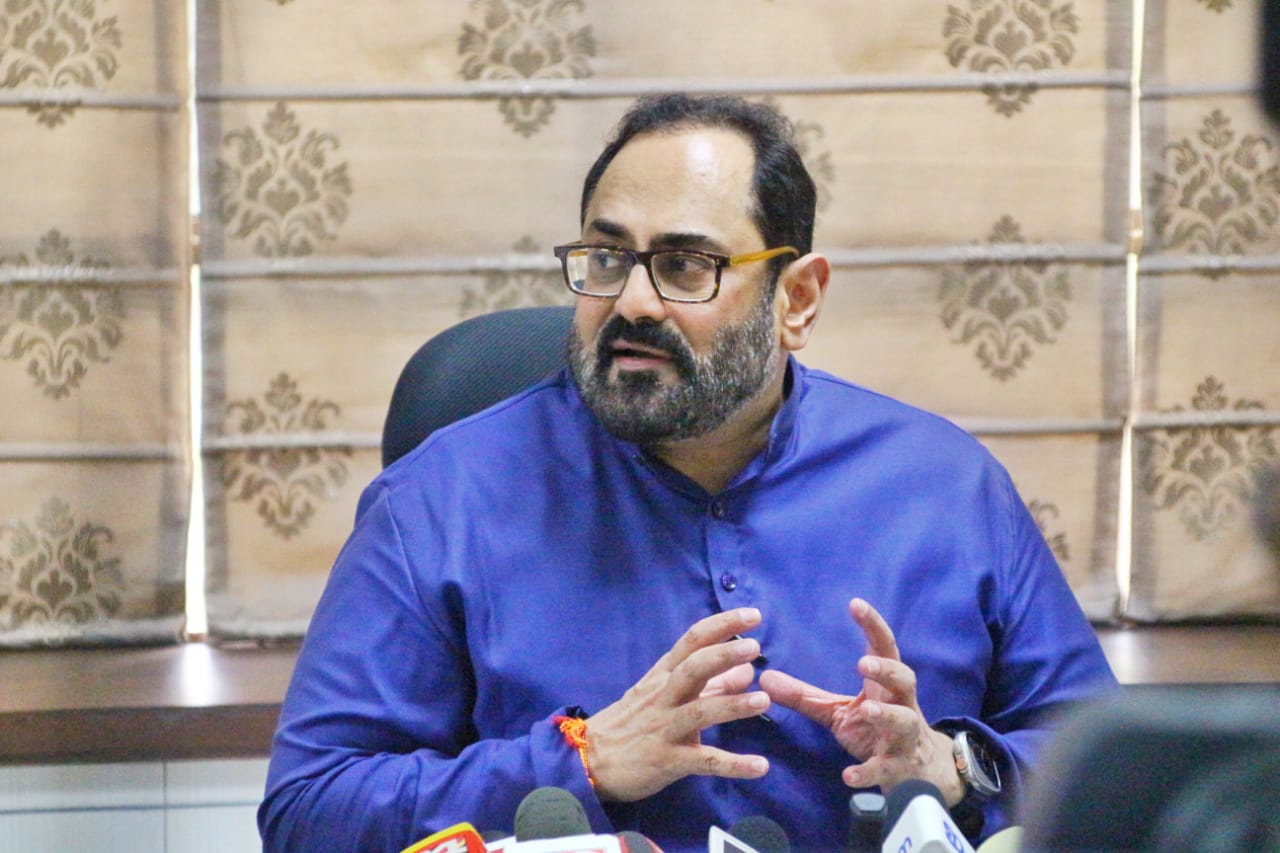Emphasizing that social media platforms like Twitter, Facebook and WhatsApp are bound by Indian constitution when it comes to their content moderation, Union Minister Rajeev Chandrasekhar spelt out the ramifications of the new IT rules today at a press briefing in the national capital.
The newly introduced Information Technology (Intermediary Guidelines and Digital Media Ethics Code) Amendment Rules, 2022, notified by the Ministry of Electronics and Information Technology, requires social media companies to submit to the authority of a “Grievance Appellate Committee” that the union government will set up by January 2023.
“We will announce structure of the Grievance Appellate Committee (GAC) and its powers, structure and scope soon”, he said. It will have one government official and two independent bodies.
He said the government is also focusing on grievances redressal as they receive lakhs of complaints from people.
“We have lakhs of messages from people whose grievances has not been addressed. This won’t be tolerated at all. We will keep looking for ways that makes the consumer feel safe and trusted. No escape of accountability. The last resort will be penalties.”
“We have obligation to the digital nagarik. The govt must be there if anyone else don’t addresses the grievances”, said Rajeev Chandrasekhar.
Also, the new rules will be helpful in cracking down on fake news and online betting, he said.
He said the main aim of the amendments was to ensure free and fair internet for all and accountability on part of the intermediaries.
The amended rules, a copy of which is in possession of The New Indian, make it mandatory for intermediaries like Twitter, Facebook, YouTube, Instagram, etc to comply with the Constitution of India provisions and India’s sovereign laws.
Elon Musk’s takeover of Twitter Inc (TWTR.N) will not change India’s expectation that it must comply with the country’s existing and upcoming new IT rules which will be published within days, a government minister told Reuters on Friday.
Over the past two years, Indian authorities have asked Twitter to act on content such as accounts supportive of an independent Sikh state, posts alleged to have spread misinformation about protests by farmers, and tweets critical of the government’s handling of the COVID-19 pandemic.
The IT rules also put the onus on the intermediary to ensure content posted on its platform is not obscene, pornographic, paedophilic, invasive of another’s privacy, hate speech, promoting illegal activities or threatening “the unity, integrity, defence, security or sovereignty of India”.
Intermediaries are now required to inform their users at least once a year of these rules, regulations and privacy policy.
In the case of a complaint against a post that violates the rules, the intermediaries must acknowledge the report within 24 hours, resolve it in 15 days, and if the complaint contains a request to remove the post, do so within 72 hours.
Anyone who is not satisfied with their complaint’s resolution can approach a GAC within 30 days. The GAC will “make an endeavour” to resolve the appeal in 30 calendar days.
The new IT rules are important and will have a profound impact on intermediaries like Twitter, Facebook, YouTube, Instagram, etc, making them accountable to users and the Indian government. They mark the end of rules framed by Big Tech Raj which sees itself as above sovereign laws, says government sources.

